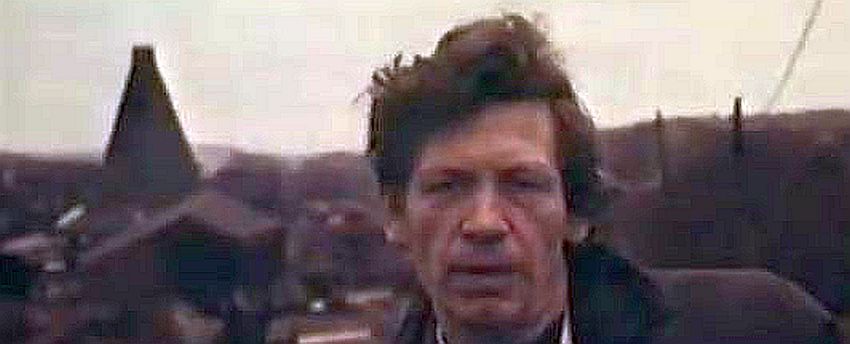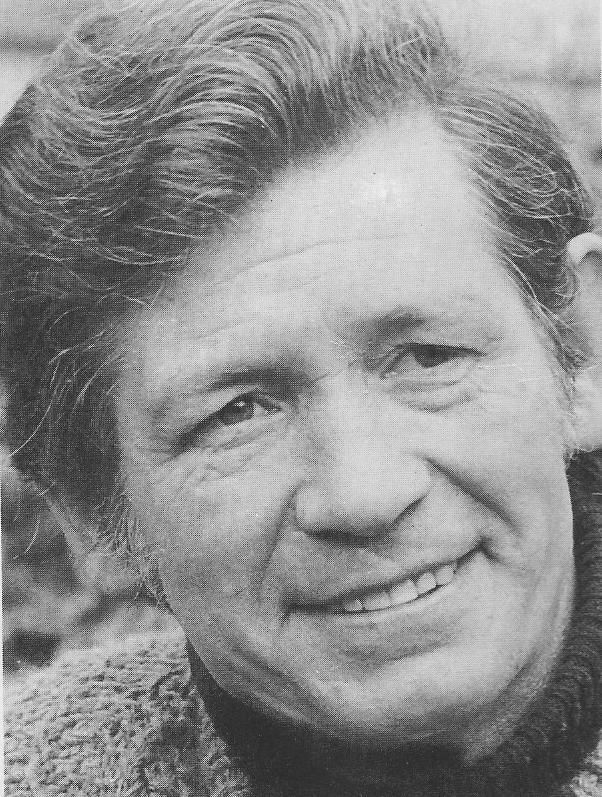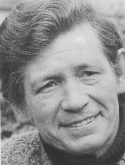
Archie Hill was a gifted, working-class writer, broadcaster and photographer who came from the English Black Country, the region which provided the central theme for his work. His writing included acclaimed autobiographical books as well novels, radio plays, television scripts and journalism. The pinnacle of his broadcasting career was an outstanding four-part 1974 BBC TV series about the Black Country called Archie Hill Comes Home.
Hill was born in 1927, to a working class family in the area of Stourbridge in the Black Country. Much of what we know of Hill’s life comes from his writings, especially his first book, the autobiographical A Cage of Shadows. This book covered Hill’s life up to the early 1950’s. Quite extraordinarily, the original text included material about Hill’s mother which she considered defamatory. She successfully sued for libel and the book was reissued with an apology from Hill and most references to his mother omitted. This book sets out, in unsparing detail, the family problems caused by his father’s abusive behaviour as well as Hill’s own difficulties in early life. It includes unsentimental descriptions of the nature of working-class Black Country existence during the depression, including an account of a rat killing contest and portraits of his adult friends who he names Konk and Pope Tolley.
Hill left the Black Country in 1944 to join the services, never to reside there very much again. His time in the services was not easy, he developed a dependency on alcohol and after that endured periods in a mental hospital, in prison and sleeping rough in London, before finding a new resolve to live a more settled life. Eventually, he married and settled in Hertford and became a jobbing writer, doing journalism, radio and TV scripts, including some Z Cars episodes.
It was however, the publication of A Cage of Shadows in 1973 that became a life-changing event. The success of this book established him as a writer of stature and led to him been commissioned in 1974 to write and present the BBC series about the Black Country called Archie Hill Comes Home. I believe it to be the best film ever made about the region and it can be seen in its entirety on this site. He then came forward with a steady flow of books over the next ten years. Four works of fiction were published, along with four further memoirs. Summer’s End in 1976 grew out of the filming for Archie Hill Comes Home and, like A Cage of Shadows, the book provides autobiographical stories from Hill’s youth, though now told with a mellower and more humorous tone as he realises that, notwithstanding the poverty of the depression, there were still ‘some golden chapters of childhood; that not all my memories were dark and bleak’. Closed World of Love is about Hill’s disabled step-son Barry, who lived a severely restricted life, being entirely wheelchair bound and unable to speak. Hill tenderly describes how he is able to learn from his stepson by imaginatively putting himself in his place.

The Second Meadow in 1982 recounts the three months he spent living off the land on a remote country estate, making use of his poaching skills to kill animals for food. The title refers to his observation that only brave animals venture to the meadows far from the safety of the woods. This period was Hill’s life was intensively productive. He also became a regular broadcaster, his books often being accompanied by radio or TV programmes. Of particular note is his four-part BBC TV series about the Black Country, Archie Hill Comes Home. In my view it is quite outstanding, as good a TV series about a region of England as you are likely to see.
One aspect of his life at this time at this time was a desire to help people who were afflicted with addiction. A leaflet he produced publicises one of his initiatives – offering talks to try to help alcoholics and drug addicts to get back to a better path through life. This shows a man with a sensitive social conscience and a deep-seated commitment to live a valuable life. Sadly, though, it was not enough.
Set against the generous aspects of his nature was a deep-seated self-destructive tendency, which caused him to destroy everything that had brought him success and self-esteem. This came through strongly in his final book, which was sub-titled ‘The Story of an Alcoholic’. Published in 1984, from it w learn that Hill is back on the bottle, his marriage has broken down and his is living in a caravan in some woods near Hertford. It revisits his life story as set out in a Cage of Shadows from the perspective of an incurable addict. It is an accomplished, even brilliant piece of writing, but deeply sad.
Two years later, this brilliant but tormented man was dead, having taken his own life by carbon monoxide poisoning. Literary critic Paul Lester said that “Archie Hill’s books bear testimony to an unsanitised heritage from which this curious, wayward, tormented, individual could never, in his lifetime, escape the painful consequences.”
After his death his work largely disappeared from public view, not even a Wikipedia article existed to promote his memory. He was not completely forgotten, however, and the reissue of A Cage of Shadows in 2018 promoted a mini-revival. An academic article about his life and work entitled Black Country Dionysus – Archie Hill and A Cage of Shadows by Nick Lee was published in 2020, arguing that “Hill’s plaintive voice is significant because it speaks for a forgotten stratum of British society”. Then, in April 2023 I personally took part in a radio programme about Hill.
This website includes a wide range of material by and about Hill, and it is hoped that it will promote further interest.
John Price – jp@archiehill.uk
May 2022
To obtain a copy of Hill’s first book, the lost classic, A Cage of Shadows, click here.

